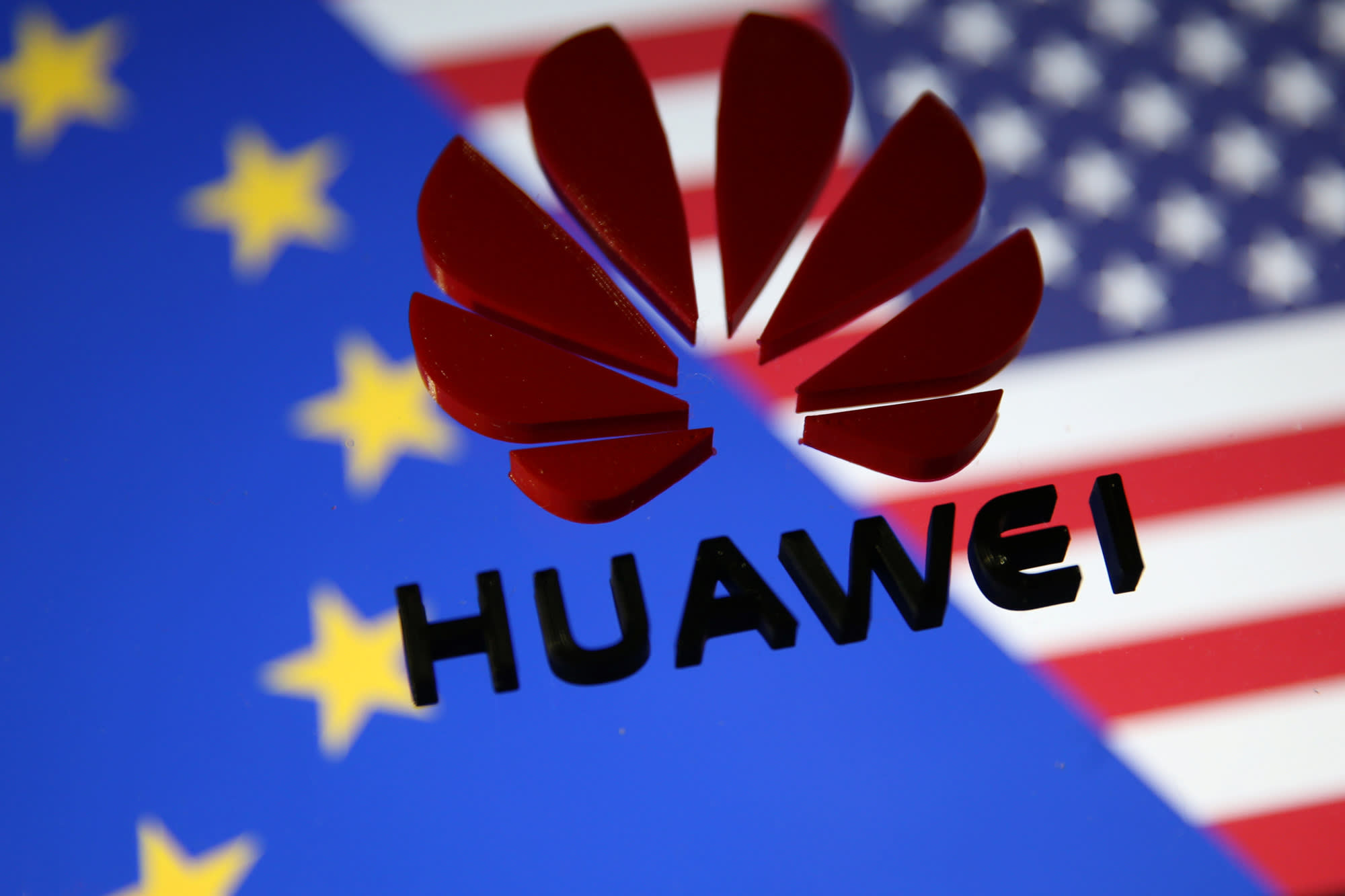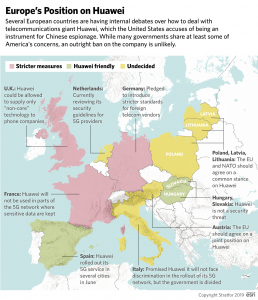
Aditya Hore
Surat: With the US leading a global campaign against Huawei, and calling on countries to dump its equipment in the 5G rollout, the British government announced last week that the UK’s telecommunications companies will be banned from purchasing new Huawei equipment.
By 2027, all Huawei equipment already installed must be ripped out of the 5G network.
The big concern for Huawei is what will the major stake-holding European countries do now?
After the US, Australia and the UK, Europe may also follow suit.
France’s major newspapers were festooned this month with full-page advertorials paid for by Huawei, with the strapline claiming that the Chinese tech giant was “Made in France.”
Huawei’s public relations firms want the “Made in Europe” brand to stick to counter concerns expressed by the region’s security experts and politicians that the Chinese firm’s 5G and other equipment allows for Chinese government’s surveillance, data-theft and possible espionage.
Abraham Liu, Huawei’s top executive for Europe, vowed in February to boost the company’s European manufacturing bases so that “we can truly have 5G for Europe made in Europe.”
But European governments, largely, are not buying Huawei’s latest public relations push, as country after country has recently downgraded its involvement in their 5G network rollouts or imposed de facto bans on its participation.

From a green light in January to a ban in July, Huawei’s fortunes in the UK had taken a dramatic turn.
Boris Johnson’s British government initially approved a limited role for the Chinese telecom giant in the country’s 5G infrastructure, angering the Trump Administration and leading figures within the Conservative Party.
Following an outright ban on the company, the US introduced fresh sanctions against Huawei in May, threatening to sever their supply chains.
Addressing the House of Commons, the UK’s Minister for Culture, Media and Sport, Oliver Dowden, said this was the deciding factor.
“Given the uncertainty that this creates around Huawei’s supply chain, the UK can no longer be confident it will be able to guarantee the security of future Huawei 5G equipment affected by the change in US foreign direct product rules,” he told MPs.
Only Huawei equipment remains in use for 4G, 3G, and wired internet, while banning all the 5G networks from next year.
President Trump appeared to take credit for the UK’s 5G U-turn, telling reporters “We convinced many, many countries, I did this myself, for the most part, not to use Huawei.”
US Secretary of State Mike Pompeo greeted the news as a victory for “Transatlantic security”.
For Huawei, this was a significant blow.
It was a 2005 deal in the UK with British Telecommunications that had allowed the Chinese company to gain a foothold in Europe. Since then, it has grown to become the world’s largest manufacturer of telecoms equipment.
In a statement, Huawei said the decision was bad for “anyone in the UK with a mobile phone.”
“It threatens to move Britain into the digital slow lane, push up bills and deepen the digital divide,” the statement claimed.
The company insists that it is independent of the Chinese government, and denied allegations that it poses a threat to national cyber-security.
The UK’s decision raises questions about the course of action other European countries will now take.
In January the EU issued a “toolbox” of security measures that countries should employ when using “high-risk vendors”, but did not recommend a ban on companies like Huawei.
Many criticised the UK’s decision, suggesting it was an expensive “token gesture” as opposed to a major change in policy towards China.
“I think really the foreign policy hawks have picked a particularly stupid issue, something that is incredibly costly to the UK government and is not a particularly strategic blow to China,” said journalist James Ball.
“We could pretend that we should have this big reset with China. We’re not going to. We know that, they know that, and so Huawei seems to have been the company chosen for the token gesture.
“But it’s a token that’s going to cost an eight-figure price tag.”
Also read: https://www.revoi.in/roving-periscope-how-covid-19-has-shattered-chinese-dreams/












